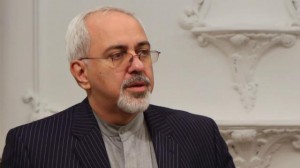 DUBAI, Dec 10 (Reuters) - Iran's foreign minister defended himself on Tuesday against what he called "slander, profanity and insults" by conservative hardliners at home who have accused him of undermining the state and are pushing for his position to be reviewed.
DUBAI, Dec 10 (Reuters) - Iran's foreign minister defended himself on Tuesday against what he called "slander, profanity and insults" by conservative hardliners at home who have accused him of undermining the state and are pushing for his position to be reviewed.Mohamed Javad Zarif was Iran's chief negotiator in a breakthrough deal struck with world powers last month under which Tehran is to curb its disputed nuclear programme in exchange for some respite from sanctions.
Some pro-security hardliners in Iran's complex power structure have complained that its negotiators gave up too much in Geneva by agreeing to stop higher-grade uranium enrichment in return for only limited relief from sanctions.
The resistance of a small but vocal minority has underlined the challenges to moderate President Hassan Rouhani in seeking to improve relations with Iran's long-time Western foes without provoking conservatives, who dominate parliament.
Twenty of the 290 members of parliament wrote to Rouhani on Sunday asking him to reassess Zarif's post after several public statements they described as "indecent", Fars news agency reported.
One occurred during a visit to Tehran University in which Zarif was quoted by local media as saying the West feared the might of the Iranian people, rather than its military defences, which he said it could destroy with a single bomb if it wished.
Zarif later said that this and other contentious comments attributed to him had been skewed or taken out of context.
"DISTORTIONS"
"It's a shame that a small minority distorted my response to one of the students' questions to further their own political views," Zarif said in a post on Facebook on Tuesday.
"They have made up for their discomfort about the passionate support of the people for the government... with insults, profanity and slander."
In another statement, Zarif was quoted as saying that�Iran�was ready to negotiate over Abu Musa, one of three disputed islands to which both the Islamic Republic and the United Arab Emirates lay claim.
Since winning an election by a landslide in June, Rouhani has explored a diplomatic opening with the West and the Gulf region in a significant foreign policy shift after eight years under confrontational predecessor Mahmoud Ahmadinejad.
Rouhani has enjoyed the crucial protection of clerical Supreme Leader Ali Khamenei, who has the final say in Iran's nuclear policy and has so far endorsed the preliminary deal.
The West has suspected Iran's nuclear work is aimed at producing a nuclear weapons capability. Tehran denies this, saying it is enriching uranium only for peaceful purposes.
One of the more outspoken critics is Hussein Shariatmadari, editor of the hardline Kayhan newspaper, who said Zarif had sent a "signal of surrender" to the West and criticised Rouhani for alleging that sanctions-ridden Iran had all but run out of funds at the time he took office in August.
"If the enemy receives a message that our coffers are empty, that the regime's defence system can be destroyed with one bomb, that the absolute sovereignty of Iran over the island of Abu Musa is negotiable, what hope is there against them thinking the hands of our negotiating team are empty, and (they are) marching to victory?" Shariatmadari wrote in an editorial. (Editing by Marcus George and Mark Heinrich)
By Reuters�
The Iran Project is not responsible for the content of quoted articles.










